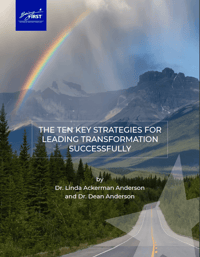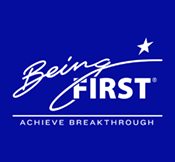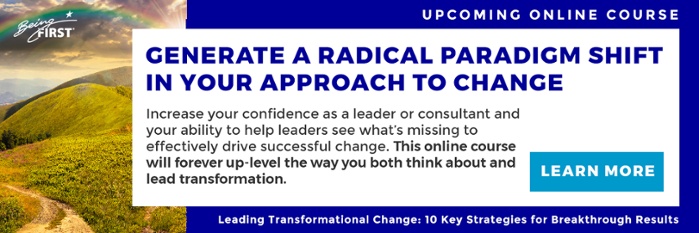Every person has six primary core needs. We each have all six to some degree, but one or two are usually dominant and drive most of our behavior. You could say that these one or two are how we are wired and we behave in our lives to meet these priority needs. If they are not met, they become our hot buttons--our most sensitive issues. When our core needs are threatened, we react to protect ourselves. When we are emotionally hurt, upset, or resistant, it is usually because one or more of these core needs have been negatively triggered by events around us. This is especially true during change when things are more uncertain!
The Six Core Human Needs
Any of these core human needs can be triggered by events during organizational change. As a leader, it is important to identify them in yourself and in your stakeholders. When you know what people want, you can design your change process to minimize the negative triggers and increase employee engagement.
Security
Needing to feel secure and physically and emotionally safe. “I need to know things will be okay. I need to feel physically and emotionally safe, without threat.”
Inclusion and Connection
Needing to be invited to join the group, be a part of what is happening, in relationship with others and cared about. “Will I be on the team that is doing this work or overlooked because of this change? Will I be able to relate to the new people in power? Will I be seen as OK in their eyes?”
Power
Needing to have direct influence over the outcome and process of the change. Needing things to go as I want. Needing to maintain power or influence as a result of the change. “Will I be able to influence things to go the way I want? Will I lose power through this change, or will I gain it?”
Order and Control
Needing to know what is going on at all times and have things be predictable, structured, and planned. Needing logic and order in the change, with minimal surprises. “I need a clear plan, so I know what is happening and can minimize disruptions and chaos. I need people to manage to the plan.”
Competence
Needing to feel capable, effective, skilled, and right. “Will I be able to perform and succeed in the new organization and be seen as competent and ‘in the know’? Will people still look to me for answers? Will I get adequate training before I am held accountable to produce?”
Justice and Fairness
Needing things to be fair and equitable. “Will the decisions of this change and their implications for me be just and equitable? Will politics or nepotism rule over fairness and equality? Will seniority prevail?”
How Core Human Needs Can Impact Commitment to Change
These six core needs are operative in people going through change. Attending to these human dynamics is crucial for your change efforts to succeed. If people’s needs are threatened by how a change is being led, even if done inadvertently, they will resist.
Change, especially transformational change, because of its chaotic, non-linear, and “march into the unknown” nature, frequently triggers these core needs in people. When unresolved, they manifest as resistance. You may hear people disagreeing with the direction of the change, see them not contributing to it, or see them intentionally trying to sabotage it. Sometimes, they may legitimately disagree with the direction or content of the change, but usually, beneath their resistant behavior is an unresolved or threatened core need.
These ego reactions are almost always unconscious. Sure, people feel and express them, but the source of their uneasiness is deeply rooted and not always obvious to them or to the leaders of the change. People are typically not aware that their ego is fearful that one or more of their needs will not be met. Operating on auto-pilot, they resist and think that the “bad, misdirected” change is a valid reason for reacting negatively and not committing. They blame the external situation for their internal resistance, not realizing it is self-generated by their ego’s core needs. This unconscious ego reaction usually keeps them from accurately perceiving positive aspects of the change effort.
Addressing the Core Human Needs of your People
As a change leader, when you become aware of these human dynamics, you can help reduce people’s resistance and raise stakeholder commitment by attending proactively to their core needs. For instance, if people with a high need for power are taken out of the decision-making loop or not given any choice about their future, they will predictably react negatively. But if you ask first for their input to decisions for consideration, they will feel they have more power over their fate and be more positive about the change. Similarly, if you put someone who has the core need to be seen as competent into an unfamiliar and visible role that they are not yet prepared for, they will be very concerned about failing and looking bad publicly, and will likely resist. However, if you let them know well in advance that they will receive significant training and coaching, and time to learn their new responsibilities before being held accountable for high performance, they will feel far more positive about the change.
When people believe their core needs will be met (or at least considered), you will see greater commitment. If a key individual is resisting, focus on their particular core needs to better understand what it will take to get them on board with your change. Since it is impossible to meet every person’s core needs all the time, observe the general pattern of core needs in your stakeholder groups, and then use strategies to approach better meeting their core needs to minimize resistance and strengthen commitment.
Related eBook:
The Ten Key Strategies for Leading Transformation

Through 40 years of observing and supporting large-scale change and transformation in Fortune 500, government, global NGOs and public service organizations, we’ve identified these ten Best Practice strategies for leading transformation successfully.
Please complete the form to download your eBook:
Related Webinar:
How to Build Leadership Commitment to Transformation
In this on-demand workshop, we explore how to ask for, generate and nurture leadership commitment. The answer is not what you think, but it will radically improve your ability to get leaders committed. Developing this skill is one of the ten key strategies for ensuring success in any organization's transformation.

